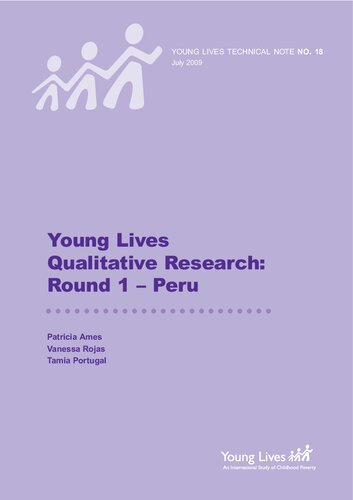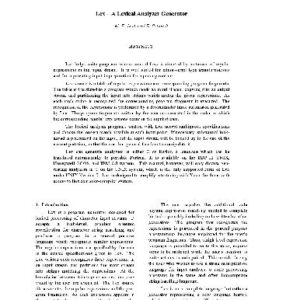This report presents an initial analysis of some of the qualitative data collected in four of the
20 Young Lives sites in Peru between August and December 2007. Data collection was
carried out with both cohorts of Young Lives children (the Younger Cohort are aged 5/6 and
the Older Cohort are aged 11/13), as well as their caregivers, teachers, community
representatives and other children. The sub-sample includes 51 children.
Three overriding questions guided the qualitative research. These were designed to be
sensitive to both differences between children (for example, age, gender, socioeconomic
status, ethnic, linguistic, or religious identity), and intergenerational differences (for example,
in the perspectives of children and their caregivers).
1. What are the key transitions in children?s lives, how are they experienced (particularly
in relation to activities, relationships, identities, and well-being) and what influences
these experiences?
2. How is children?s well-being understood and evaluated by children, caregivers and
other stakeholders? What shapes these different understandings, and what causes
them to change? What do children, caregivers and other stakeholders identify as
sources of and threats to well-being, and what protective processes can enable
children to minimise these threats?
3. How do policies, programmes and services shape children?s transitions and wellbeing? What are the different stakeholder perspectives on these processes? What is
the interplay between public, private and not-for-profit sectors and communities within
these processes?
The qualitative research entailed a mix of methods to generate data on the themes of
transitions, well-being and services, including individual interviews with children, caregivers
and teachers, and group interviews with children (both cohorts), as well as with adults in the
community. Creative methods such as drawing and neighbourhood walks with the children
were used as a basis for discussion of key research themes. Semi-structured observations of
homes, schools and community settings provided the context for analysing and
understanding the data
Technical
{PDF} Young Lives Qualitative Research: Round 1 ? Peru Patricia Ames; Vanessa Rojas; Tamia Portugal
$19.99






Reviews
There are no reviews yet.